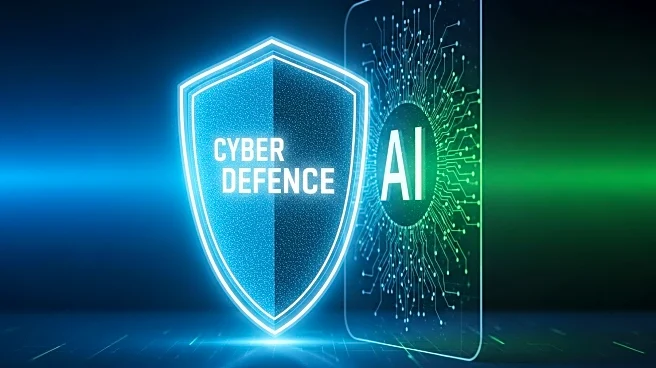What is the story about?
What's Happening?
Varonis has announced the acquisition of SlashNext, an AI-driven email security company, for up to $150 million. This strategic move aims to bolster Varonis' capabilities in data-centric security and threat detection. SlashNext specializes in blocking phishing and social engineering attacks across various platforms, including email and collaboration tools like Slack and Microsoft Teams. The acquisition highlights the growing importance of artificial intelligence in cybersecurity, as cybercriminals increasingly leverage AI to target victims. SlashNext's technology employs predictive AI models, computer vision, and natural language processing to identify and block threats, achieving high detection accuracy in independent tests.
Why It's Important?
The acquisition of SlashNext by Varonis underscores the critical role of artificial intelligence in modern cybersecurity strategies. As cyber threats evolve, companies must adapt by integrating advanced technologies to protect sensitive data. This move is significant for industries relying on secure communication platforms, as it enhances the ability to prevent data breaches originating from email and collaboration tools. Businesses stand to benefit from improved security measures, potentially reducing the risk of costly cyberattacks. The integration of SlashNext's technology into Varonis' platform could set a new standard for email security, influencing industry practices and encouraging further innovation.
What's Next?
Following the acquisition, Varonis plans to integrate SlashNext's technology into its Managed Data Detection and Response (MDDR) services. This integration aims to enhance the detection and prevention of threats in email inboxes, a common entry point for data breaches. Varonis' CEO, Yaki Faitelson, emphasized the potential to increase the value of their services by connecting email, identity, and data. The company may also explore further acquisitions to expand its cybersecurity portfolio. Stakeholders, including businesses and cybersecurity professionals, will likely monitor the impact of this acquisition on industry standards and practices.
Beyond the Headlines
The acquisition raises questions about the ethical use of AI in cybersecurity, particularly concerning privacy and data protection. As AI becomes more prevalent in detecting threats, companies must ensure that their technologies do not infringe on user privacy. Additionally, the move may prompt discussions on the legal implications of AI-driven security measures, especially in terms of compliance with data protection regulations. The long-term impact could include shifts in how organizations approach cybersecurity, prioritizing AI-driven solutions to address increasingly sophisticated threats.















